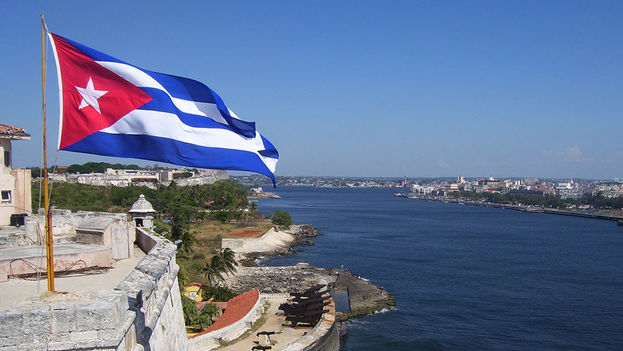
Desde Aqui, Reinaldo Escobar, Havana, 20 May 2015 — Yesterday I invited my granddaughters to get ice cream. To boast of her knowledge, the oldest, who is in the third grade, said to me: “Today marks the 120th anniversary of the death in combat of José Martí, our National Hero.” She said it with the same pride in wisdom with which one day, many years ago, I alerted my parents to the fact that the earth was round.
“And tomorrow, May 20, what will we celebrate?” I asked her, imitating the emphasis of schoolteacher. Almost arrogantly she responded, “On May 20 nothing happened.”
As she was born in the 21st Century I invited her to look for the significance of the date on a phone app containing Wikipedia, which she could consult without an Internet connection. Surprise! The text there reads: “1902: Cuba achieves independence from the United States of America.”
But the newspaper Granma wasn’t having it: In the top right corner of the last page, where anniversaries often appear under the heading “Today in History,” it said: “1902: The neocolonial republic was installed in Cuba.”
I can foresee that in the future, that bright morning of the first day of the year will not be remembered as the end of a dictatorship, but as the beginning of another
The protagonists of History are not to blame for how the future interprets their acts. For example, the massacred aboriginals who inhabited our beautiful island never could have suspected the enthusiasm with which Cubans would celebrate the 500th anniversary of the Spanish colonial settlements. The people of Bayamo who watched their properties burn could never have imagined the degree of voluntary unanimity today attributed to the glorious fire of 1869. No one could have convinced those who lost a son, a father, a brother in the bloody events of 26 July 1953, that that date would be a national holiday.
On May 20, 1902 dozens of countries around the world publicly recognized the advent of Cuba as an independent nation. The joy was massive, sincere and overwhelming. And I do not say unrepeatable because 56 years later there was a first of January on which Cubans never thought that a tyrannical regime would be installed in Cuba.
I can foresee that in the future, that bright morning of the first day of the year will not be remembered as the end of a dictatorship, but as the beginning of another. Nor that when my great-grandchildren are asked what happened on that date, they will respond “nothing happened that day.”
